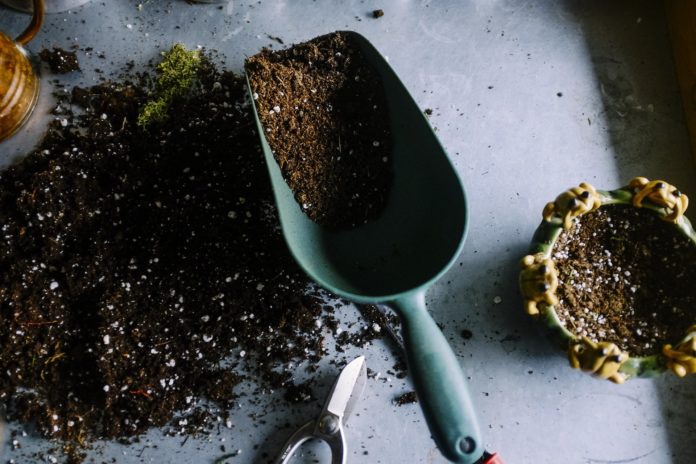With the nation currently isolating in their homes and facilities shut down, we have little choice but to try and enjoy this enforced staycation. Maintaining mental and physical wellbeing during this time will be of paramount importance as so many areas of our lives feel very much out of our control. Thankfully the sun is beginning to make a more regular appearance, which means the garden is finally open for business. Here, leading garden PR agency, Hornby Whitefoot PR, explores the vital role gardening has for mental and physical wellbeing – as if we needed any further excuses to get out there!
Just what the doctor ordered…..
The physical health benefits of digging borders and growing fruit and veg are well documented, while the medical profession is increasingly recognising horticulture’s pivotal role in therapy and tackling mental health issues, including stress and anxiety.
Media reports citing medical experts have claimed that the NHS could make considerable financial savings if horticultural therapy is prescribed instead of traditional health treatments. As one leading doctor pointed out: “Since about £60billion is spent on long-term conditions, 80% of which could be prevented by a healthier lifestyle, there is a significant incentive to develop a programme that includes horticulture.”
As the benefits of gardening rise up the medical agenda, studies are confirming the link between horticulture and wellbeing. A report commissioned by the National Gardens Scheme, called ‘Gardens and health, Implications for policy and practice’, hit home the benefits that horticulture can bring. Author David Buck summarised: “Increasing people’s exposure to, and use of, green spaces have been linked to long-term reductions in overall reported health problems (including heart disease, cancer and musculoskeletal conditions). It has been linked to reduced levels of obesity and high physical activity, and higher self-rated mental health. Living in areas with green spaces seems to weaken the effect of income inequalities on health.”
The report described the mental health benefits of gardening as “broad and diverse”, pointing out that studies have shown “significant reductions in depression and anxiety, and improved social functioning”.
Benefits to older people, the core customer demographic for garden centres, were highlighted, too: “Surveys suggest that gardens become more important to us as a source of physical activity, but also in terms of our identity and independence, and in ameliorating loneliness. There is emerging evidence that gardening may be important in falls prevention (helping to maintain good gait and balance) and in dementia prevention and cognitive decline.”
It added: “The effects of gardens in care homes and hospices have been well studied, especially in dementia care. Most dementia studies report that exposure to gardens reduces agitation, aggression and other symptoms. Qualitative studies point to improvements in concentration, connection with past memories, and access to natural light.”
Recognition of gardening’s benefits
AXA PPP Healthcare is a leading private medical insurer that recognises the benefits that gardening can have on physical and mental wellbeing. In addition to reducing stress and anxiety, it says gardening achievements result in “satisfaction and empowerment” that can “improve self-esteem and confidence”. The resurgence of grow-your-own has implications for healthy eating.
The garden trade can take advantage of facts about the physical benefits of gardening released by AXA PPP, to potentially boost sales of tools, products and plants. According to the insurer, heavy landscaping can burn 400-600 calories per hour, followed by raking leaves (350-450 calories), clearing the garden (400 calories), mowing the lawn (250-350 calories), weeding (200-400 calories), planting flowers (200-400 calories) and watering the garden (120 calories).
Businesses looking to spread the word about gardening for physical health should also note the “body benefits” of gardening highlighted by AXA PPP. Gardeners are claimed to have lower levels of the stress hormone cortisol, leading to improved sleep patterns, while outdoor physical activity naturally helps to strengthen the heart, building endurance and increasing stamina, reducing the risk of a heart attack and stroke. Activities such as raking and collecting-up leaves involve constant bending, twisting, lifting and carrying, all of which strengthen muscles. Finally, squatting, lifting and pushing helps to build and tone gluteal muscles, hamstrings and quads, improving balance and even helping to prevent falls in older people, according to the insurer.
Exploring holistic benefits
Gardening for health charity Thrive delivered 9,000 therapeutic gardening sessions last year at its centres in London, Birmingham and Berkshire, with 94% of its client gardeners saying they “felt better” as a result of attending the programmes. Thrive’s CEO, Kathryn Rossiter, says: “There is a lot of evidence for the holistic benefits of gardening, particularly in therapeutic settings. Spending time in nature, being meaningfully occupied and being with people offers a powerful combination of physical, psychological and social benefits that enhance health, wellbeing and quality of life.”
Kathryn adds: “It has been encouraging to see how the health benefits of gardening have been increasingly prominent in conversations within the gardening sector over the last year or two, particularly the emphasis on mental wellbeing.” She is calling on the garden trade to provide financial support to those running therapeutic gardening programmes and adds: “Support schools and families to help children to develop a love of gardening, which in turn will provide lifelong health and wellbeing benefits. They’ll end up being your next generation of customers.”
Social prescribing to boost health
When it comes to tackling health issues, the Royal Horticultural Society says GPs’ surgeries are often the first place that people go when they don’t know where else to turn. It is estimated that 20% of people visit their doctor for “what is primarily a social rather than a health problem,” according to the RHS, which is highlighting how “social prescribing” can relieve the burden on the NHS.
It will introduce such a scheme at its new garden, RHS Bridgewater in Manchester, where gardening therapy is to be rolled out, while three gardens, The Wellbeing Garden, The World Food Garden and The Wildlife Garden are being created at its flagship estate, RHS Wisley in Surrey. RHS Director of Science and Collections, Professor Alistair Griffiths, said in a recent report: “A gardening green revolution has started – with increasing scientific evidence highlighting the critical importance of plants, gardens and gardening benefiting our physical, mental and social wellbeing.”
As if we needed any more excuses to get out in the garden! The team at Hornby Whitefoot PR is planning on getting out into the garden as much as possible over the coming weeks. We’ll be sharing our experience on Instagram – @HornbyWhitefoot – plus we’ll be sharing #gardeningismytherapy to highlight how others are using gardening as a way to relax and decompress during the lockdown.









